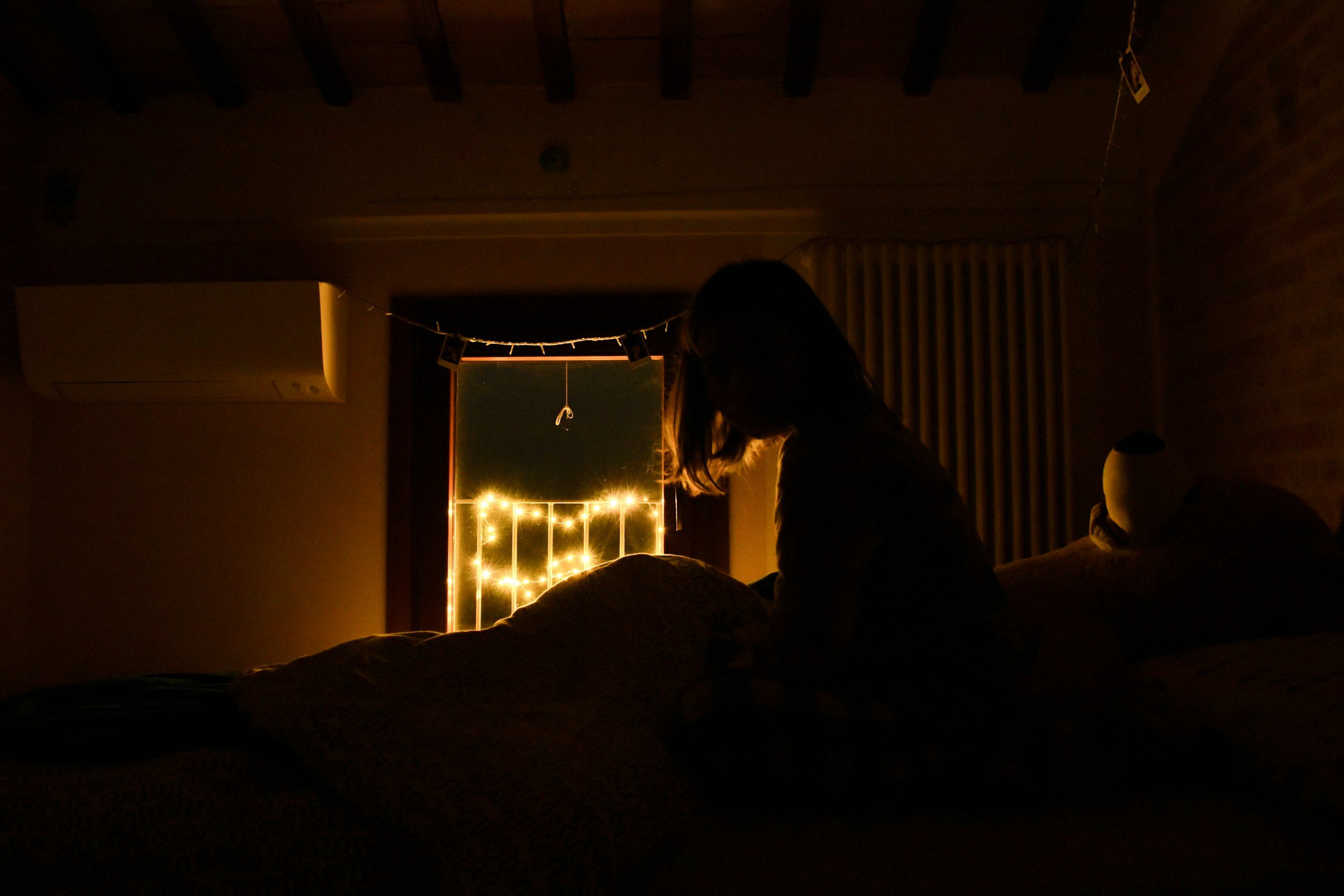
Insomnia Treatment for Philadelphia
Cognitive-Behavioral Therapy for Insomnia (CBT-I)
Having trouble sleeping?
You are tossing and turning. Trying everything you can to sleep. Supplements. Prescription medications. Suggestions from the internet. Many people have insomnia for years before they hear about cognitive-behavioral therapy for insomnia (CBT-I). It’s a highly effective treatment - it’s considered the gold-standard treatment for insomnia.
What is CBT-I?
CBT-I is a very brief therapy that helps to ensure your body’s sleep systems are working as well as they can be and that they are working together to help you fall asleep and stay asleep. The therapy also helps to address any anxiety you may be feeling as a result of your insomnia . Treatment may be enhanced with mindfulness and relaxation exercises as well, which can help your brain and body relax.

Will I be able to sleep tonight?
I’m going to feel terrible tomorrow, and my day at work will be disastrous.
I’m afraid my insomnia is harming my health.
These are common worries with insomnia. With therapy, not only will your sleep improve, but you’ll find relief from bothersome thoughts like these.
What is included in CBT-I?
CBT-I consists of several different pieces of treatment. Since treatment will be tailored to you, you may end up just doing a few of these things before your insomnia improves. Other people find their sleep is best once they have received all of these recommendations. All of these treatment components are backed by science to help you improve your insomnia over time.
Information about sleep and insomnia:
Sleep is both a learned process and a biological one. Through treatment, you’ll receive lots of information about how sleep works in the body. This can help you to understand the why behind the other treatment techniques we use.
Sleep restriction or sleep compression:
Sleep restriction and compression both aim to harness the body’s systems that help you to fall asleep and stay asleep. This treatment helps to get these systems back on track and working as well as they should be.
Stimulus control:
Over time with insomnia, your bed can end up becoming a cue for your brain and body to feel anxious and alert, or to do things other than sleep (like reading, responding to work e-mails). This component of treatment helps your brain and body to re-learn that your bed is just for sleep and sleepiness.
Cognitive therapy and mindfulness:
Insomnia often leads to anxiety about sleep and how you’ll feel the following morning. Cognitive therapy and mindfulness can help to change the relationship with your thoughts, which can ultimately help you to feel less bothered by anxiety about your sleep.
Relaxation strategies:
These strategies can help to calm your brain and body, which may feel tense and wired when you’re experiencing insomnia. These exercises are also particularly helpful if you’re trying to taper off of a sleeping medication.
Who is CBT-I for?
CBT-I is most helpful for people who have chronic insomnia disorder. This means you’ve had trouble with falling and/or staying asleep for three months or more. CBT-I can also be used with people that have had insomnia for shorter periods of time as well.
CBT-I can be helpful if you have depression, anxiety, OCD, and PTSD in addition to your insomnia. Treating your insomnia with CBT-I can even improve symptoms of depression and anxiety.
Many people with insomnia also have other sleep disorders like sleep apnea, restless legs syndrome, and nightmares. CBT-I can be used to treat insomnia when you also have another sleep disorder.
Benefits of treating your insomnia with CBT-I
-
When you have insomnia, you can have trouble with falling asleep at bedtime or with staying asleep throughout the night, or with both falling and staying asleep. CBT-I helps people to fall asleep more quickly and easily and also helps decrease the number of night wakings and how long people are awake during those wakings.
-
With insomnia, you often experience fatigue and sleepiness that can last throughout the day and make everything feel miserable. CBT-I can help to decrease how sleepy and fatigued you feel throughout the day to help get you back to doing the activities you enjoy doing.
-
Not sleeping well can make you feel grouchy, irritable, and more anxious. Treating your insomnia with CBT-I can help to improve your mood and make day-to-day life more enjoyable and less anxiety-provoking.
Meet Liz Culnan
I’m a licensed clinical health psychologist, and I specialize in treating insomnia and other sleep disorders. I love seeing the quick and lasting change that CBT-I provides people. Everyone deserves to get the sleep that they need!
I received my PhD from Drexel University in Philadelphia, and have trained in many sleep centers including the Children’s Hospital of Philadelphia, Drexel, The Philadelphia VA, and Rush University Medical Center. Once I completed my training, I served as an assistant professor and with the Sleep Disorders Service and Research Center within the Department of Internal Medicine at Rush University Medical Center. I also served as the Associate Director of Behavioral Sleep Medicine Services at Rush University Medical Center, and am a Diplomate of Behavioral Sleep Medicine, which represents the highest level of training someone can have for providing therapy to help people sleep well.
FAQs
-
CBT-I is a very brief therapy. Most people finish in 4-8 sessions, although this can vary some. Therapy length is completely tailored to you and how your body responds to the different components of treatment. By tailoring treatment to you, you’ll see improvements to your insomnia more quickly than if treatment was tailored.
-
I’m one of a few hundred people in the world who are board-certified in behavioral sleep medicine. Prior to starting my practice, I was also the associate director of behavioral sleep medicine services at a top academic medical center in Chicago. This means that I’ve treated hundreds of people like you with insomnia. Read more about my training here.
-
Typically we start off meeting weekly. We may shift to biweekly meetings as your sleep begins improving.
-
I provide online therapy. All sessions are take place via HIPAA-compliant Zoom.
-
Yes! So many people experience difficulty sleeping during pregnancy and during the postpartum period. We can use CBT-I, taking into account that you’re pregnant or have a little one at home.
Let’s get you sleeping better. Reach out to start online CBT-I in Philadelphia today.
Mindful Health Psychology provides mindful, compassionate online insomnia therapy (CBT-I) for people in Philadelphia, PA, and 43 additional States online

Other services offered at Mindful Health Psychology:
Mindful Health Psychology is a practice offering in-person and online therapy for Denver, CO. Mindful Health Psychology is also able to provide online therapy to most other states (see FAQs for details on specific states served). We specialize in therapy for anxiety, depression, distress during pregnancy, postpartum depression, postpartum anxiety, coping with miscarriage and pregnancy loss, coping with fertility-related stressors, birth trauma, PMDD, coping with a chronic medical condition, nightmares, circadian rhythm disorders, and hypersomnia disorders. Providing online therapy to multiple states makes treatment more accessible, which means you can be located in Denver, Boulder, Chicago, Philadelphia, Miami, Princeton, Washington DC, Seattle, and beyond!


